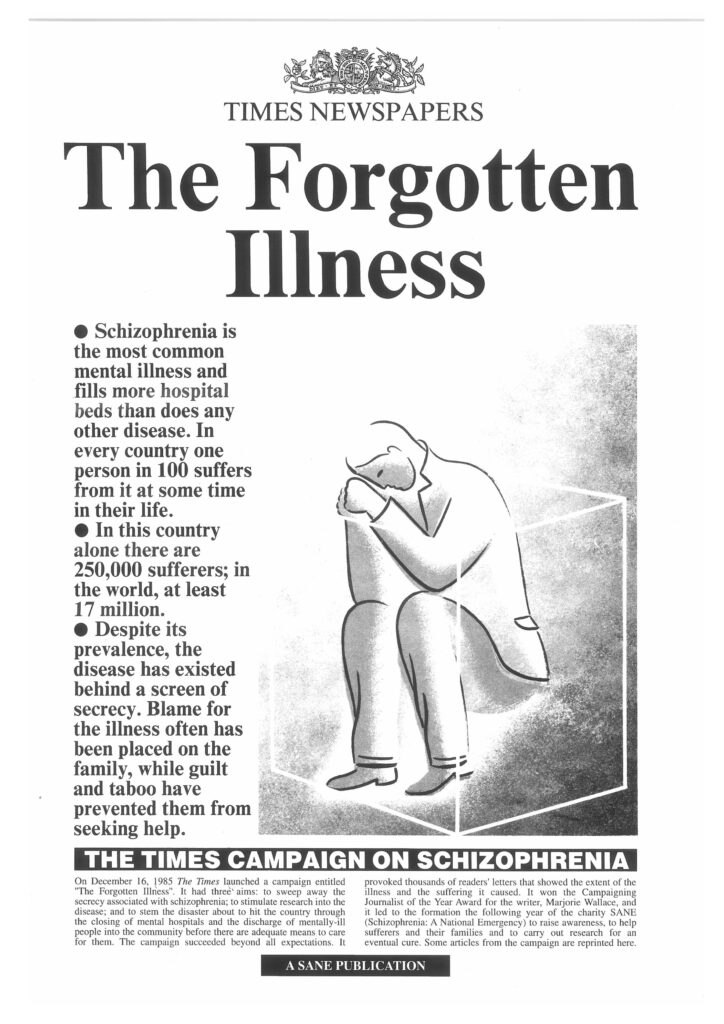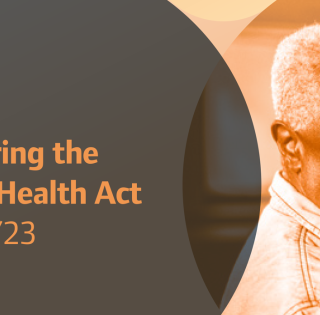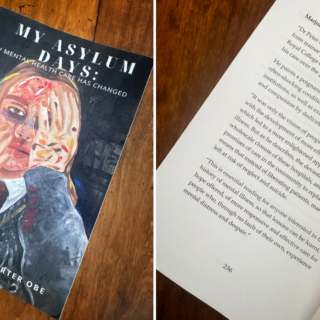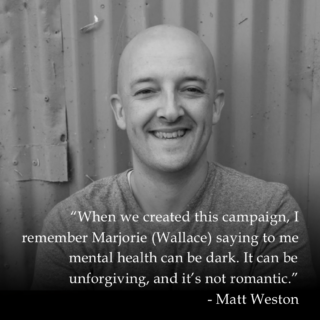Schizophrenia is becoming less forgotten but there remains much to do
Despite heartening progress in mental health awareness and some advances in treatments, the lives of those affected by schizophrenia are still in the slow lane.
Many services remain ill-equipped to provide consistency of care and there is still a lack of knowledge and fear surrounding a diagnosis. People often receive little or no information and too many families and carers are not involved in the treatment choices of those they care for, despite being the first line of help.
About one in 100 people will experience schizophrenia during their life. It is most likely to start between the ages of 15 and 35.

- About 45% of people who receive a diagnosis recover after one or more episodes, but about 20% show unremitting symptoms and the remaining 35% show a mixed pattern with varying periods of remission and relapse.
- The life expectancy of schizophrenia sufferers is shortened by 15 to 20 years.
- Only around 10% of people with schizophrenia are in employment, yet many more could and would like to work.
- We still do not know the causes, nor have we developed effective treatments without potentially severe side-effects, or made psychological therapies widely enough available.
- Schizophrenia does not receive the funds or resources needed to help those affected – it is still sitting on the backburner because there hasn’t been the breakthrough in treatment that we have all hoped for.
From an initial focus on schizophrenia – our name started as an acronym for “Schizophrenia: A National Emergency” – SANE has long been concerned with all mental health conditions and those affected including families and carers.
More needs to be done
Many callers to our helpline – SANEline – complain about the negative symptoms of their schizophrenia and carers tell us of their exasperation of not being able to find the support and information they need. From its earliest days the line has been inundated by people needing information and help about their illness.
Up to 25% of callers who contact us are concerned about the people they care for. One of the major issues they face is the feeling of helplessness. Many family members can feel excluded from services and by professionals.
Our Still Forgotten report, published in 2019, highlighted how people affected by schizophrenia or psychosis struggle to access crisis support, are often not informed about local services and do not feel involved in decisions affecting their everyday life.
Far more needs to be done to improve care and treatment and provide better information and support for families and carers. People need to be given hope that it is possible to live a fulfilling life after diagnosis. Living with this misunderstood illness should never be a barrier to relationships, employment, and quality of life.
Related links:
Focus on schizophrenia: the forgotten illness again
Still Forgotten report – Download PDF (3.9MB)
‘The Forgotten Illness’ articles in full online – issuu.com
NHS.uk – Overview of schizoprenia






